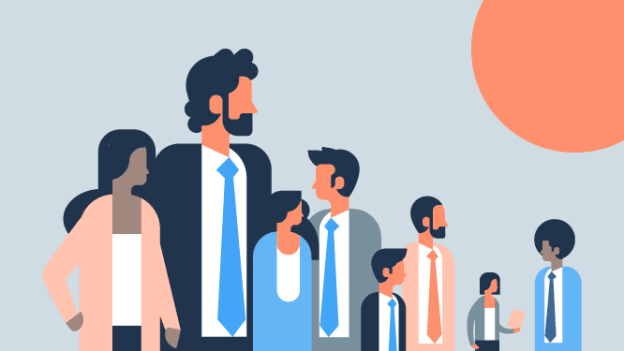Making the shift from “survive to thrive”

For most of us, our living rooms have become our new office premises and kitchens our new breakout areas after the onset of COVID-19. The pandemic has challenged our conventional wisdom of keeping the professional and personal lives separate and donning different personas at home and work. The lines there have blurred so much so that close co-workers and team members sometimes play the roles of extended family members, who they do not hesitate to approach in time of need. In that aspect, the pandemic has been the great leveller and pushed most to see the human first and the colleague later. Employee expectations of its employer have changed too.
Employees seek flexibility and freedom to decide when and how to work
Employees’ preferences are changing to adjust to new realities of the post pandemic world. They no longer fuss about achieving a balance between home and office as they have come to acknowledge the power of pairing most enjoyable activities with most essential ones. Employees believe flexibility gives them better control over their life, and strengthens their organisational identity. Burnout is no more a badge of honour for them. They would like to prioritise their physical and mental well-being − more so during the ongoing global crisis.
Moreover, employees are more socially driven and value employers that personify humanistic qualities, such as empathy, emotional intelligence, compassion, and care for physical and mental well-being, rather than materialist attributes (such as growth rate, revenues figures, and profit). Following environment-friendly practices, being socially responsible, displaying strong work ethics, and exhibiting the spirit of giving back to the community are also some of the qualities that employees look for in their employers. The findings of Deloitte India 2021 Millennial and Gen Z Survey also confirm this transformation in employees’ behaviour. About 25% Indian millennial employees and 22% Gen Z employees have refused to work with a company because its views and behaviour do not align with their own. Moreover, 36% millennial employees consider “flexibility/adaptability” to be an employee characteristic most critical to successful organisations. Personal beliefs/ethics are far more influential over the type of the work Indian millennial and Gen Z employees are willing to do (72% vs 66%).1
The pandemic disrupted the employee-employer relationship
In the past couple of years, the employee-employer relationship has evolved to find order in the chaos caused by the pandemic and survive in the new normal. Even when the virus will no longer be a threat, the new normal is here to stay; it is nowhere close to the world order we were used to live in. Work-life boundaries are blurring to make way for work-life integration. A new work model is evolving, recognising the changing behaviour of employees.
Employees now prefer “socially and environmentally conscious” organisations whose purpose align with employees’ value systems – organisations that do not turn a blind eye to their people’s needs while pursuing profit. This shift in employees’ attitude has posed a challenge to employers – how to stay “humane” in a technology-driven world where the mind with machine strategy rules every boardroom discussion?
Employers need to up the ante to move from the survive to thrive mindset
Navigating successfully through uncharted waters in the new normal would need a promising vision for deepening and strengthening the employee-employer relationship. Organisations must up their game and reimagine the way they are doing business – keeping people at the core of their strategies. They need to shift their mindset to put “people first” while approaching every challenge, issue, or problem. This shift in mindset will not only help organisations attract and retain employees but also motivate them to give their best. Putting “people first” calls for various initiatives that employers need to consider. Most employers have already started thinking of the human aspect in every business decision. They are ensuring that employees have the right technology to work effectively from anywhere, and drafting “people friendly” policies, including better leave policies (considering the pandemic-induced emergency scenarios). They have revised their travel policies to make employees feel safe while travelling. Employees’ mental well-being, especially during the pandemic times, is one of the topmost concerns of employers. The new leadership model will take these aspects into consideration and rely more on soft skills, including deep listening and empathy, to get work done and add value to organisations.
Employers must embed thought and care in their strategies and foster a culture driven by purpose and meaning, ethics and fairness, growth and passion, collaboration and relationships, and transparency and openness. They need to stop considering employees as mere “resources” needed to drive profits but see them as humans.
A sneak peek into 2021 Deloitte Global Human Capital Trends report2
The report highlights attributes that may help organisations shift their mindset from survive to thrive. Based on a survey conducted in 99 countries, the report includes views of 6,000 professionals, including 3,630 senior executives (outnumbering HR professionals surveyed for the first time in the survey’s 11 years) across industries, sectors, and regions. The report uncovers how the crisis affected the way business executives viewed organisational preparedness, the challenges and opportunities they expect to face in the future, and their perspective on work transformation strategies.
The research showed that the best prepared organisations saw COVID-19 as an opportunity to move forward and “thrive” in the new normal. About 15 percent “very prepared” organisations were 2.2 times more likely to invest in meeting changing business demands. The “very prepared” group was also twice as likely to use technology to transform work, and recognise the importance of organising work to facilitate rapid decision-making. It is nearly three times more ready to use worker adaptability and mobility to navigate future disruptions.
The survey findings highlight that preparedness depended on organisations’ ability to weave human connection into organisations’ DNA, and perpetually demonstrate resilience, courage, and flexibility to navigate new realities.
Humanising work and workplaces to thrive in unknown scenarios3
Here’s how employers can bring out the human angle in every business decision to flourish in both the turbulent and “business as usual” scenarios.
- Integrating employees’ professional and personal lives: Workers’ physical, mental, financial, and social well-being is not a leisure-time activity. It is a part of their ‘being’ and must be integrated in the work design. This integration will present a win-win situation for both employers and employees. Employers will win commitment and loyalty of employees. In turn, employees will have a better quality of life and a sense of purpose.
- Empowering employees with choice: Let employees pursue their quirks and passions and leverage their exclusive strengths to fulfil organisational needs. Allow them to bring their idiosyncrasies to work, steer projects end-to-end, explore unconventional ways of addressing business problems, make mistakes in the process, and learn from their experiences. Employees will be motivated to wholeheartedly engage in work and cultivate a sense of ownership and belongingness. Needless to say, this practice can improve an organisation’s overall performance as well.
- Using technology to humanise the way teams work: Creating effective teams, powered by technology, are imperative to successfully navigate any scenario – new, favourable, or unfavourable. The innovative use of technology allows teams to leverage every member’s human characteristics and distinctive qualities. For example, artificial intelligence can help teams re-architect work in more human ways and show agility in decision-making.
- Making workforce strategies based on real-time insights: Identifying strengths, preferences, behaviour, and working patterns of workforce; and devising impactful workforce strategies would help meet employees’ needs and empower them to excel their performance.
- Redesigning work across the enterprise: HR professionals of every organisation must broaden their horizon and think beyond standardising and enforcing workforce policies. They need to collaborate with business and other functional heads to revisit the design of work and embed the human angle in every aspect.
During uncertain scenarios, organisations displaying human qualities would be able to quickly rise up to new realities, challenge the status quo, and traverse unknown terrains to come out of the ‘survive’ mindset and embrace the “thrive” attitude. The future of work and workplaces will be rife with opportunities and possibilities never imagined before. We are in the middle of a revolution; how prepared are you?














